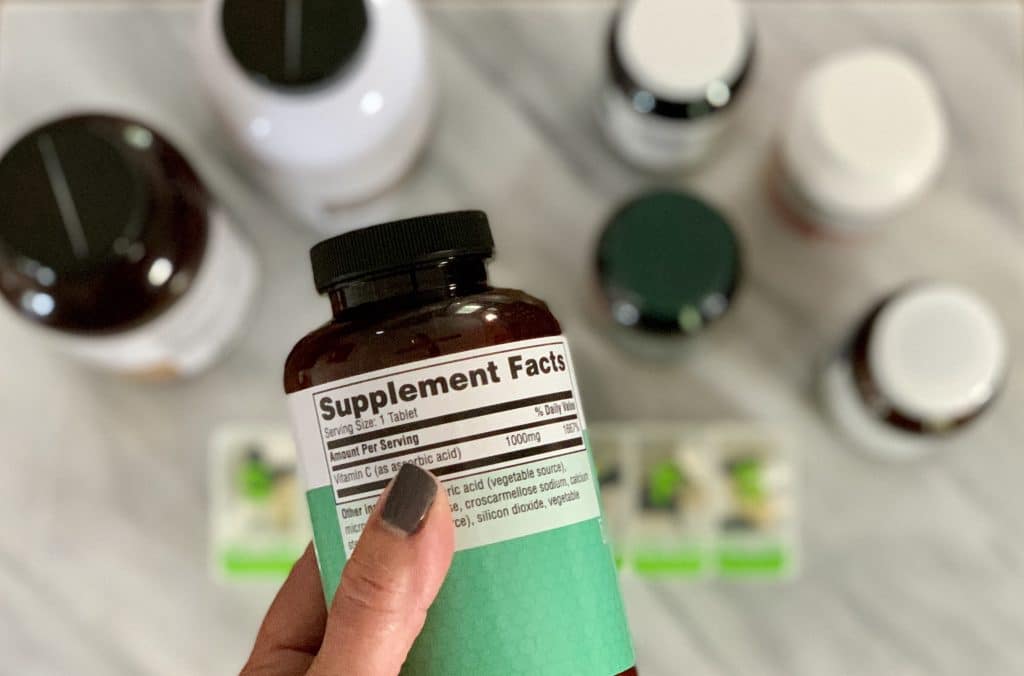Bone health is an important issue for people of all ages. Bones provide support and structure for the body, protect vital organs, and store calcium and other minerals. Strong bones are essential for overall health. However, no one wants to experience weak and brittle bones, so taking the necessary steps to improve your bone health is crucial. Thankfully, you can do plenty of things to achieve this goal. This post article will share tips on improving your bone health and keeping your bones strong and healthy. Stay tuned for more information!
Contents
Eat A Balanced Diet

Bones are the foundation of your body and play a vital role in your overall health. Not only do they provide structure and support, but they also protect your organs and store essential nutrients. Given their importance, it’s not surprising that nutrition is one of the critical factors in maintaining healthy bones. A diet with plenty of calcium and vitamin D is essential for bone health.
Calcium is the main structural component of bones, and vitamin D helps the body to absorb calcium. In addition, vitamin D is also crucial for maintaining muscle function, which can help to prevent falls and fractures. While many foods are rich in calcium and vitamin D, such as milk, cheese, and oily fish, supplements can also be a helpful way to ensure that you’re getting enough of these essential nutrients. By following these guidelines, you can help to keep your bones healthy and strong.
Exercise Regularly

Bones are living tissues that are constantly being broken down and rebuilt. When we are young, our bodies produce more bone than is being lost, and our bones are at their strongest. However, as we age, the rate of bone loss begins to exceed the rate of bone production, leading to a gradual decrease in bone mass.
This can lead to many problems, such as osteoporosis and fractures. However, exercise is one of the best things you can do to maintain healthy bones. Weight-bearing exercises, such as walking, running, and lifting weights, help to stimulate bone growth and reduce the rate of bone loss. In addition, exercise can help improve balance and coordination, reducing the risk of falls and fractures. Including exercise in your daily routine can help keep your bones healthy and strong for years to come.
Get Enough Sleep Every Night

Most people know that getting a good night’s sleep is important for overall health, but few realize that sleep is also essential for bone health. During sleep, the body releases a human growth hormone, which helps promote cell growth and repair. This process is necessary for keeping bones healthy and strong.
In addition, sleep helps to reduce inflammation throughout the body, which can lead to joint pain and stiffness. For these reasons, ensuring you get enough sleep every night is important. Adults should aim for 7-8 hours of uninterrupted sleep each night. If you have trouble sleeping, you can try several things, such as drinking chamomile tea before bed or using a noise machine to block out distractions. Getting enough sleep can help keep your bones healthy and strong.
Limit Caffeine Intake

Caffeine is a naturally occurring substance in coffee, tea, and chocolate. It is also in some sodas and energy drinks. Caffeine has historically been used as a stimulant and can help improve focus and alertness. However, caffeine can also have some negative effects on health. One of the most significant risks associated with caffeine consumption is its impact on bone health.
Caffeine inhibits the absorption of calcium, which is essential for bone development. In addition, caffeine increases the amount of calcium excreted in the urine. As a result, excessive caffeine intake can lead to weakened bones and an increased risk of fractures. Limiting caffeine intake can help to reduce the risks to bone health. For adults, the American Academy of Pediatrics recommends consuming no more than 300 mg of caffeine per day – about two to three cups of coffee. By limiting caffeine intake, you can help to keep your bones healthy and strong.
Quit Smoking And Drinking Excessive Alcohol

Smoking and excessive drinking are two habits that can harm your bone health. Studies have shown that smokers are at an increased risk for developing osteoporosis, a condition that causes the bones to become weak. In addition, smokers tend to have lower levels of vitamin D, which is essential for healthy bones.
Excessive alcohol consumption can also lead to bone loss, as it interferes with the body’s ability to absorb calcium. Alcohol consumption has also been linked to an increased risk of falls, which can lead to fractures. While quitting smoking and drinking excessively may not be easy, it is important to remember that doing so can help improve your bone health.
Take A Multivitamin Supplement

There’s no one-size-fits-all answer to the question of whether or not you should take a multivitamin supplement. However, it’s worth considering if you’re concerned about your bone health. Vitamin D and calcium are essential nutrients for strong bones, and a multivitamin can help ensure you get enough of both. In addition, vitamin D helps your body absorb calcium, so it’s important to get enough of both nutrients to maintain healthy bones.
If you don’t get enough vitamin D from sun exposure or your diet, a supplement can be a great way to boost your levels. Similarly, if you don’t eat many dairy products or other foods rich in calcium, a supplement can help you make up for the shortfall. In addition to vitamin D and calcium, magnesium and phosphorus are important minerals for bone health. A multivitamin can help ensure you’re getting enough of these nutrients, giving you the best possible chance of maintaining healthy bones.
Avoiding High-Risk Behaviors

While most people know that bones can break, they may not realize that there are two different types of breaks. A stress fracture is a small crack in the bone that occurs as a result of repetitive stress or overuse, while a single impact or force causes a traumatic fracture. Both fractures can be extremely painful and have a long recovery time. In severe cases, they may even require surgery.
Fortunately, there are several things that people can do to reduce their risk of fractures. For example, avoiding high-risk behaviors such as jumping from heights or participating in contact sports without proper protective gear can help prevent traumatic fractures. In addition, practicing good form and avoiding overexertion while exercising can help to prevent stress fractures. In addition to reducing your risk of fractures, avoiding high-risk behaviors can also benefit your overall health and well-being.
Start Improving Your Bone Health Today!
Bones are constantly regenerating, so it’s never too late to start caring for your bone health. Eating a balanced diet and getting enough exercise is essential for maintaining strong bones. If you’re concerned about your bone health, talk to your doctor about whether you should supplement your diet with these or other nutrients. Taking care of your bones today will help to ensure a healthy and active future. Thanks for reading!


